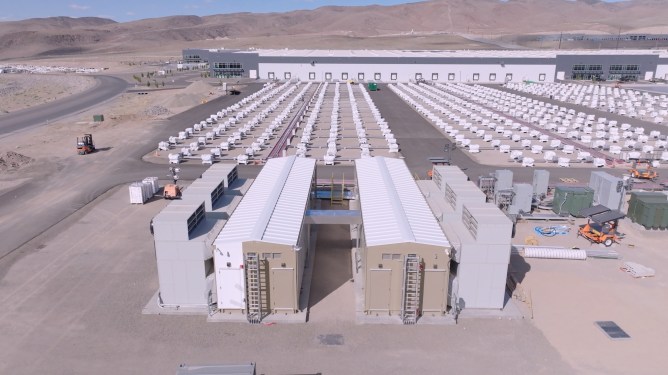Redwood Materials, a battery recycling and cathode production company, has raised 350 million dollars. This funding will support the growth of its new energy storage business, which aims to power the current AI data center boom.
The Series E investment round was led by the venture firm Eclipse. It also included a new strategic investment from Nvidia’s venture capital arm, called NVentures. The company did not disclose its valuation, but a source familiar with the round indicated it was approximately 6 billion dollars. This is one billion higher than its previous valuation.
The new capital will be used to expand the company’s burgeoning energy storage business. It will also increase its refining and materials production capacity. Redwood, which was founded by former Tesla Chief Technical Officer JB Straubel, additionally plans to hire more engineers and staff for its operations team.
When Redwood Materials was founded in 2017, its mission was to create a circular supply chain for batteries. This initially focused on recycling scrap from battery cell production and consumer electronics like cell phone and laptop batteries. That business continues to grow and involves processing discarded goods to extract materials like cobalt, nickel, and lithium, which are typically mined. Redwood then supplies these materials back to its customers, which include Panasonic, General Motors, and Toyota.
The company has since expanded into new, related pursuits such as cathode production. Most recently, it launched an energy storage business that uses the thousands of electric vehicle batteries it collects to provide power to companies. This business, named Redwood Energy, is largely directed towards serving AI data centers and other large-scale industrial sites.
Redwood is sitting on massive quantities of EV batteries that have too much life left to justify recycling them immediately. The company ties these retired EV batteries to renewable energy sources like wind and solar to create an off-grid system. This system sends power to AI data centers or industrial sites. The setup can also be tied to the main electrical grid. Redwood states the EV batteries can be connected to natural gas turbines or future nuclear generators for large-scale energy storage.
The company has a plentiful supply for this endeavor. It recovers more than 70 percent of all used or discarded battery packs in North America, and not all are recycled right away. As of June, Redwood had stockpiled more than 1 gigawatt-hour worth of batteries that could be used for energy storage. By 2028, the company plans to deploy 20 gigawatt-hours of grid-scale storage. This plan places it on track to become the largest repurposer of used EV battery packs.

